경기장
베뉴 시리즈와 함께, 당신이 선택한 경기장이 잊지 못할 FIFA 카타르 2022™ 스토리의 배경이 됩니다..
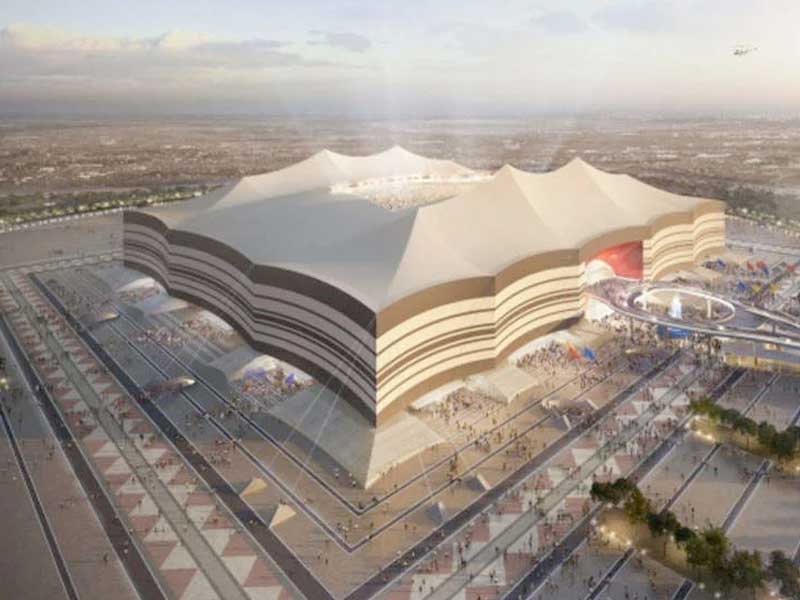
60,000 수용력 경기장
알코르(Al Khor)시에 위치, 진주 채취와 낚시로 유명한, 알 베이트 스타디움은 베이트 알 샤아르를 복제하여 만들어졌습니다., 카타르의 유목민들이 역사적으로 사용했던 텐트. 이 혁신적인 디자인, 전통적인 베두인 가옥의 흐르는 직물을 반영합니다., 디자인뿐만 아니라 개막전을 포함한 2022 FIFA 월드컵 카타르 2022™ 주요 경기의 무대로도 모든 팬들을 기쁘게 할 것을 약속합니다., 5개의 추가 그룹 경기, 두 개의 중요한 준결승전 중 하나를 포함한 녹아웃 라운드 경기.
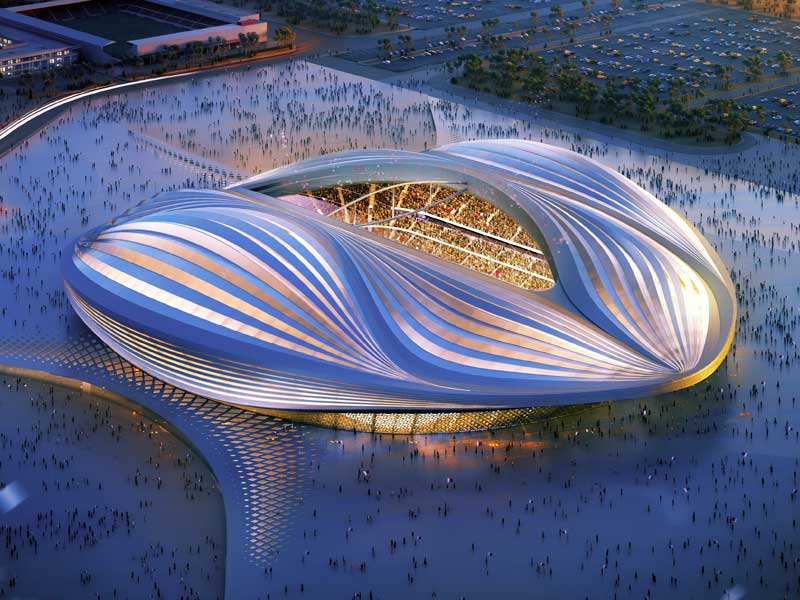
40,000 수용력 경기장
알 와크라(Al Wakrah) 남부 도시에 위치, 40,000명을 수용할 수 있는 알 자누브 경기장은 다우호를 기념하기 위해 설계되었습니다., 카타르 지역의 가장 상징적인 상징 중 하나인 진주 어선. 카타르에서 가장 오래되고 지속적으로 사람이 거주하는 지역 중 하나, 알 와크라(Al Wakrah)는 오랫동안 진주 채취와 낚시, 유려한 디자인의 중심지로 알려져 왔습니다., 경기장 건설에 사용된 목재 및 천연 재료는 이러한 유산에 대한 경의를 표하는 것입니다.. 알 자누브 스타디움에서는 FIFA 월드컵™ 조별 예선 6경기와 조별 예선 1라운드가 개최됩니다. 16 성냥.
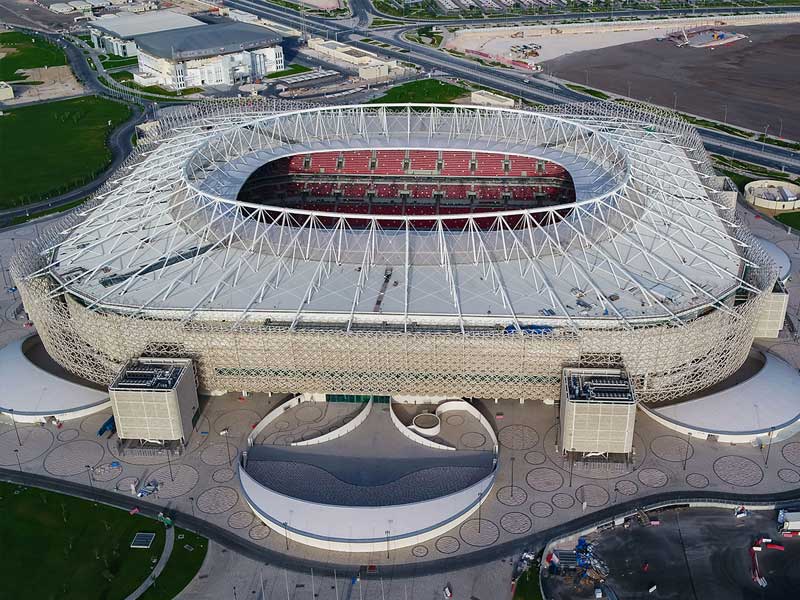
40,000 수용력 경기장
아마드 빈 알리 경기장은 카타르 문화 상징을 활용하여 주변의 사막과 문화적 아름다움을 반영하는 경기장을 만들었습니다.. Al Rayyan의 현지인들은 전통에 대한 사랑과 따뜻한 환대로 알려져 있으며 이는 팬들이 기대할 수 있는 것입니다..
이 경기장은 2022년 FIFA 카타르 월드컵™을 위해 특별히 건설되었으며 원래 있던 경기장을 대체했습니다.. 이 지역은 또한 새로운 쇼핑몰을 유치합니다., 몰 오브 카타르. 토너먼트 후에는 경기장 수용력이 절반으로 줄어들어 지역 사회에서 더욱 적합하게 사용할 수 있습니다.. 경기장, 사막 가장자리에 앉아 있는 곳, 새로운 철도를 통해 도시와 연결됩니다.
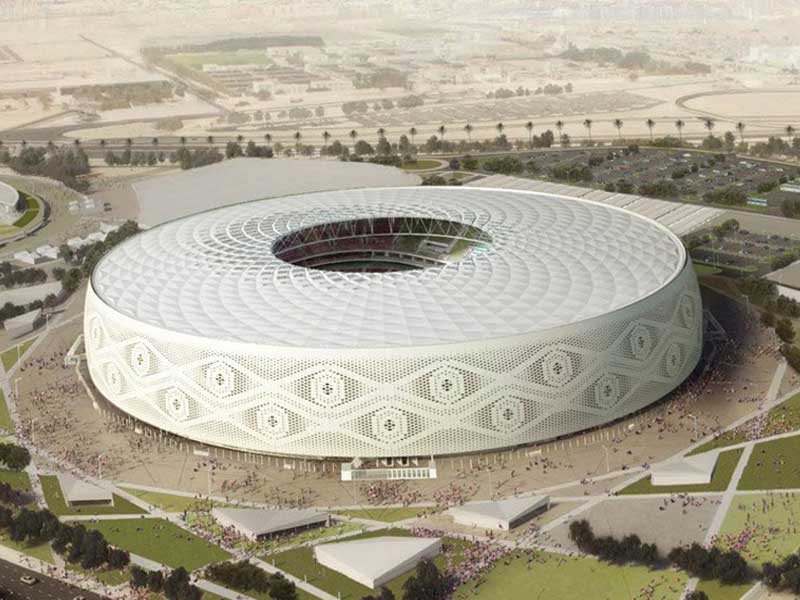
40,000 수용력 경기장
알 투마마 경기장, 전통 가피야에서 영감을 받은, 지역 전통 의상의 중요한 부분을 구성하는 직조 모자, 문화에 대한 훌륭한 찬가이다, 지역의 역사와 상징.
이 경기장, 2022년 FIFA 카타르 월드컵™을 위해 특별히 제작되었습니다., 8강까지 여러 경기를 치르게 됩니다..
카타르 국민의 관대함을 그대로 반영한 것.
경기장 상단 좌석을 부티크 호텔로 대체하고, 세계적으로 유명한 아스페타르 스포츠 클리닉 지점도 추가할 예정이다.. 이런 식으로 경기장은 월드컵이 끝난 후에도 오랫동안 지역 사회에 봉사할 것입니다..
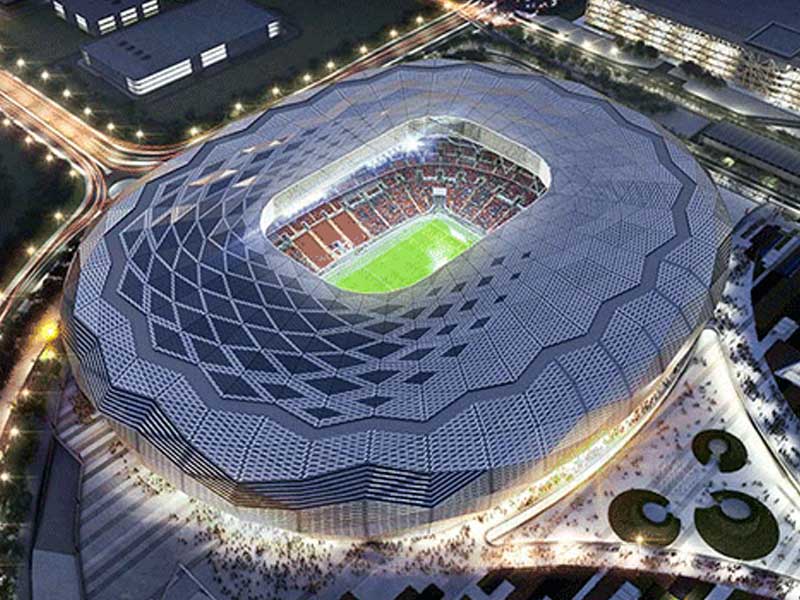
40,000 수용력 경기장
선도적인 대학과 획기적인 연구로 둘러싸여 있습니다., Education City는 혁신의 중심지에 있는 경기장입니다.. 독특한 냉각 시스템부터 주변 녹지 공간까지, 경기장은 지속 가능성과 미래를 염두에 두고 건설되었습니다..
다이아몬드 모양의 경기장의 초기 수용력은 40,000 좌석, 이는 다음과 같이 줄어들 것입니다. 25,000 토너먼트가 끝나면 추가 좌석이 개발도상국에 기부됩니다..
경기장 주변, 시내 중심에서 불과 7km 떨어진 곳에 위치한, 팬들은 골프 코스와 다양한 상점을 즐길 수 있습니다.
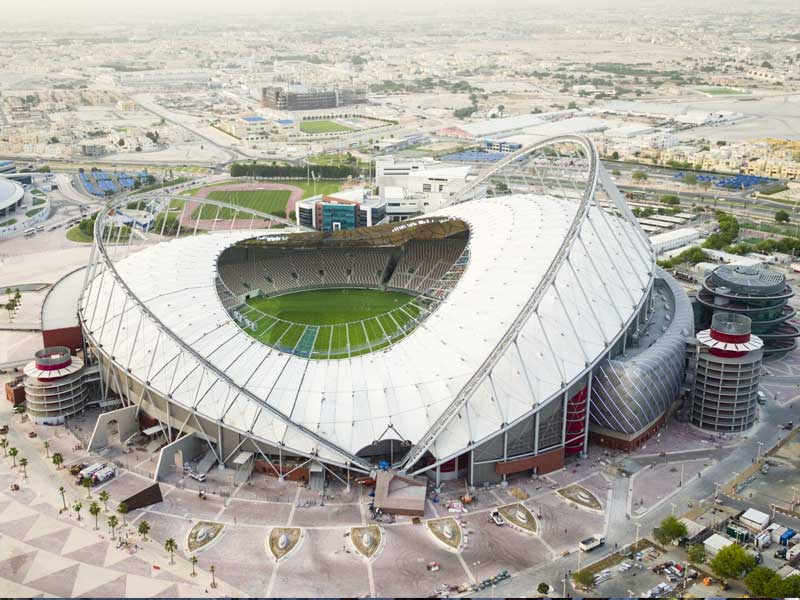
40,000 수용력 경기장
이후 카타르의 주요 축구 경기장으로 사용됨 1976, 칼리파 국제 경기장은 국가 스포츠 전통의 초석 역할을 해왔습니다.. 지속성과 팬들의 포용을 표현, 다가오는 FIFA 월드컵™ 경기를 준비하기 위해 최근 경기장에 두 개의 새로운 이중 아치가 추가되었습니다.. 경기장은 팬들을 제공합니다 40,000 좌석이 있으며 시내 중심에서 10km 떨어진 곳에 편리하게 위치해 있습니다.. 이는 카타르의 올림픽 수영 센터와 실내 홀을 포함하는 대규모 개발의 일부를 구성합니다.. 빌라지오 몰, 공원과 The Torch Doha 호텔도 개발의 일부입니다.. 경기장은 홈경기도 할 예정이다. 3-2-1 카타르 올림픽 및 스포츠 박물관.
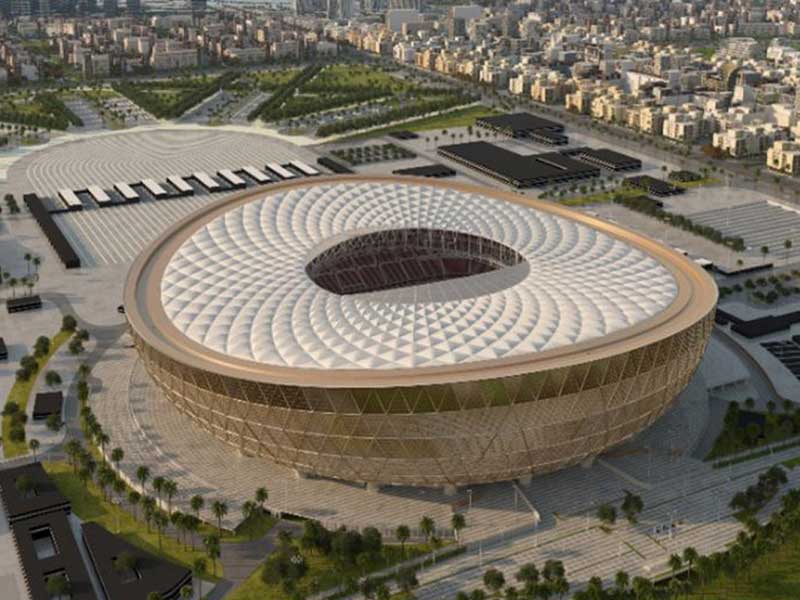
80,000 수용력 경기장
루사일 스타디움, 전통적인 팬나 랜턴에서 볼 수 있듯이 빛과 그림자의 춤을 중심으로 디자인되었습니다., 축구에서 가장 중요한 경기의 무대가 될 것입니다, 2022년 FIFA 카타르 월드컵™ 결승전. 경기장은 아랍 세계를 풍부하게 표현하도록 설계되었습니다., 그릇을 모티브로 한 전시, 지역의 그릇과 예술 작품. 결승전 외에도, 루사일 스타디움에서는 6개의 조별 경기와 1개의 준결승전을 포함한 3개의 녹아웃 라운드 경기도 개최됩니다..
헌금 80,000 좌석 루사일 스타디움은 문화를 세계와 공유하려는 카타르의 열정을 구현한 것입니다. 도하 도심에서 북쪽으로 15km 떨어져 있으며 새로운 루사일 대도시의 중심지로 자리잡고 있습니다..
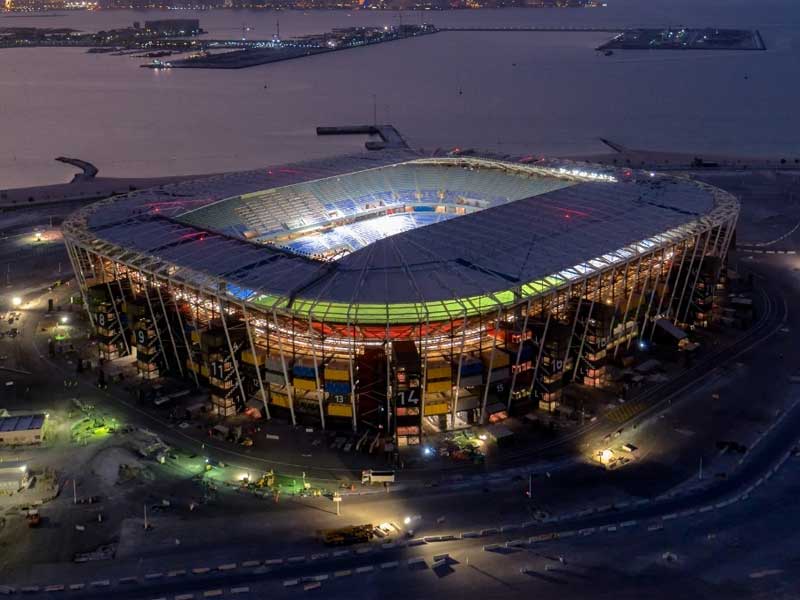
40,000 수용력 경기장
경기장 974, 지속 가능한 개발과 혁신적인 아키텍처 측면에서. 2022년 FIFA 카타르 월드컵™ 이후 철거되도록 설계된 세계 최초의 혁신적인 경기장입니다..
동해안에 위치, 바다 건너 도하의 빛나는 중심업무지구와, 경기장 974 (이전에는 Ras Abu Aboud 경기장으로 알려짐) 주목할 만하다, FIFA 월드컵 기간 동안 일련의 조별 예선 경기를 개최할 초현대적인 경기장.
경기장 974, 걸프 해안을 따라 건설된 임시 경기장, West Bay의 눈부신 전망을 제공할 뿐만 아니라, 하지만 흥미로운 디자인 컨셉. 배송 컨테이너로 제작됨, 경기장은 전통적인 경기장보다 건설에 더 적은 자재를 사용합니다., 미래의 개발자가 따를 수 있는 청사진 만들기.
